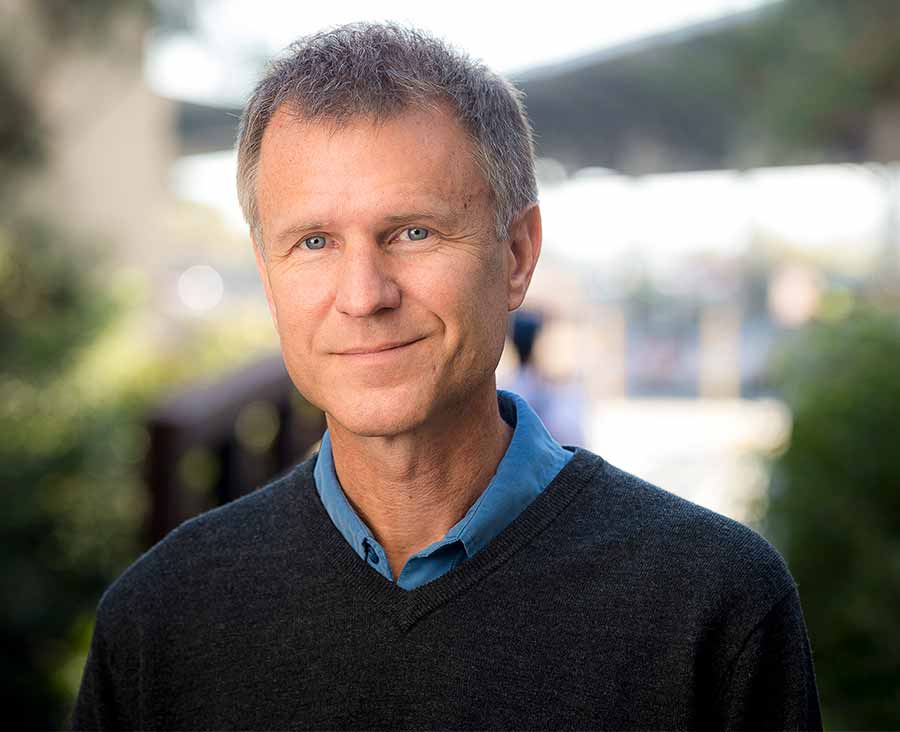By:
- Inga Kiderra
Published Date
By:
- Inga Kiderra
Share This:
This Way Up
UC San Diego’s Yankelovich Center for Social Science Research seeks to point policymakers to most effective strategies for improving upward mobility in the United States

Lane Kenworthy
The American Dream is less real than it used to be. On that, the evidence is clear. Incomes have grown slowly for all but the wealthiest since the late 1970s. And if you were born into a less advantaged family, the chances of making it into the middle class have diminished. But what to do? What will work best to restore the nation’s promise of upward mobility? The Yankelovich Center for Social Science Research at UC San Diego will weigh 25 available options and, in two years, will release a ranking of the most effective.
“There is no shortage of proposed strategies to remedy America’s upward mobility problem,” said sociology professor Lane Kenworthy, director of the Yankelovich Center in the UC San Diego Division of Social Sciences. “What we lack, and what policymakers most need, is information about the relative merits of such strategies.”
With the support of a $100,000 gift in start-up funding from Yankelovich Center founder Daniel Yankelovich, Kenworthy is putting together an Upward Mobility Commission to examine the existing research on possible solutions and estimate their probable impact.
The commission will consist of eight experts, with assistance from a postdoc at UC San Diego. The experts will be drawn from around the country and will represent different disciplines. They will also come from several points on the political spectrum.
The project differs from a lot of social science research, Kenworthy said, in that its primary aim is to give useful guidance to policymakers and the public: “If you really want to make a dent in the problem, or solve it, here’s what the science tells us will help—and how much.”
Yankelovich, sometimes dubbed the “dean of American pollsters,” has spent 50 years monitoring social change and public opinion. Founder of several nonpartisan public policy research organizations, including Public Agenda, he is perhaps best known for starting the New York Times/Yankelovich poll, now called the New York Times/CBS News poll.
The Upward Mobility project strikes a personal chord with Yankelovich, aged 90.
“Back when I was a kid, the American Dream was very real for me,” Yankelovich said. “I had a very limited understanding of how to make a living but there were so many sources of opportunity. I want us to try to find practical ways, bipartisan ways, of reversing the current trend—and bringing back equality of opportunity.”
Kenworthy, author of half a dozen books, including the forthcoming “The Good Society,” holds UC San Diego’s Yankelovich Chair in Social Thought, a chair endowed with the explicit aim of transcending traditional academic boundaries.
Kenworthy conceives of the Yankelovich Center’s Upward Mobility Commission as a smaller and country-specific version of the IPCC, or the Intergovernmental Panel on Climate Change. Much like the IPCC report, he said, the report the commission will produce is meant “to steer the debate in an evidence-based direction.”
“I think the shortfall in upward mobility is America’s most important economic problem,” Kenworthy said. “And for the first time in a generation, it is getting attention on the national stage. It is critical we not only talk about it but also figure out what to do.”
The 25 strategies the commission will examine range from improving infrastructure and reducing economic regulation to expanding access to preschool.
Broadly defined, the strategies are of four interlinked types. Those aimed at:
- increasing economic growth;
- enhancing education and training;
- increasing the degree to which economic growth reaches middle- and lower-income households; and
- improving opportunity for persons from less advantaged backgrounds.
The impact estimates will be standard cost-benefit estimates, focusing on employment and earnings. They will be based on the number of people likely to be helped, the average magnitude of the benefit, the length of time before the benefit occurs, the duration of the benefit, and the cost. They will also take into account the degree of uncertainty around these estimates.
In ranking each strategy, the commission will, among other factors, consider who it helps and whether or not it is dependent on other strategies.
The commission will not take into account the likelihood of policymakers adopting a given strategy. “That is an important issue, but one that should be addressed separately,” Kenworthy said. “First, let’s see what social science has to say about our best next steps for heading in the right direction.”
Share This:
You May Also Like
Stay in the Know
Keep up with all the latest from UC San Diego. Subscribe to the newsletter today.



